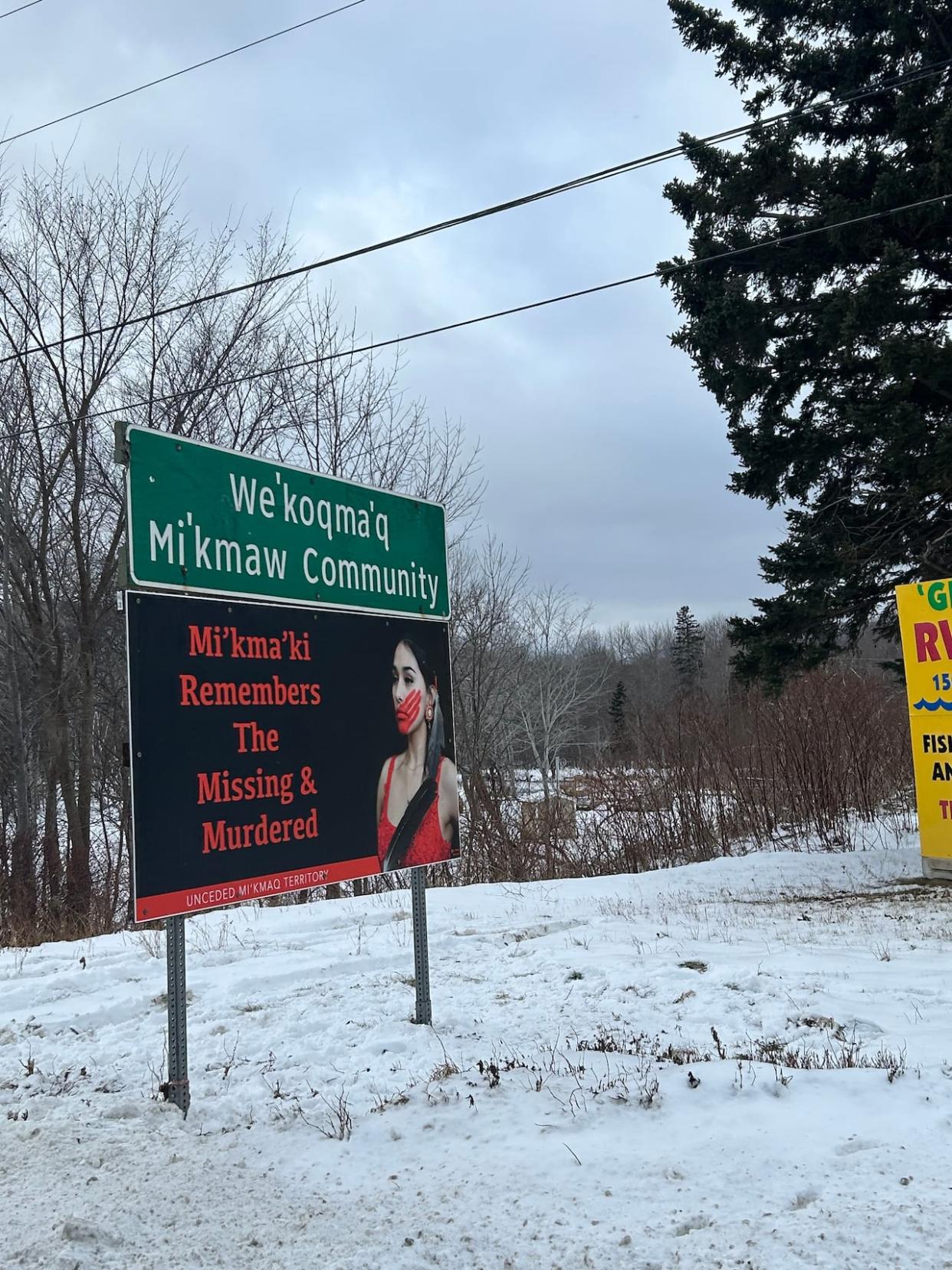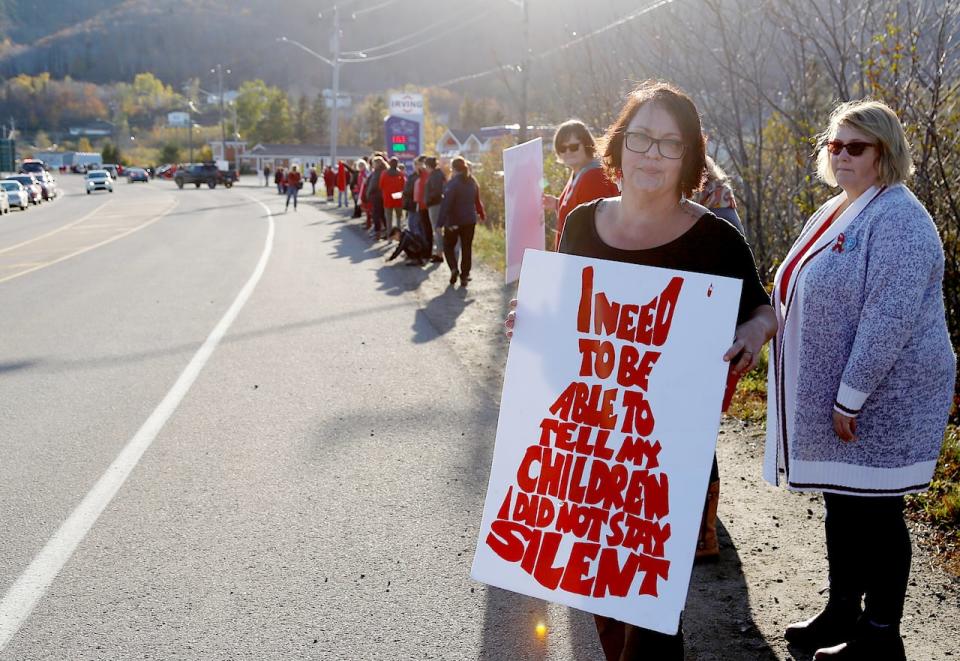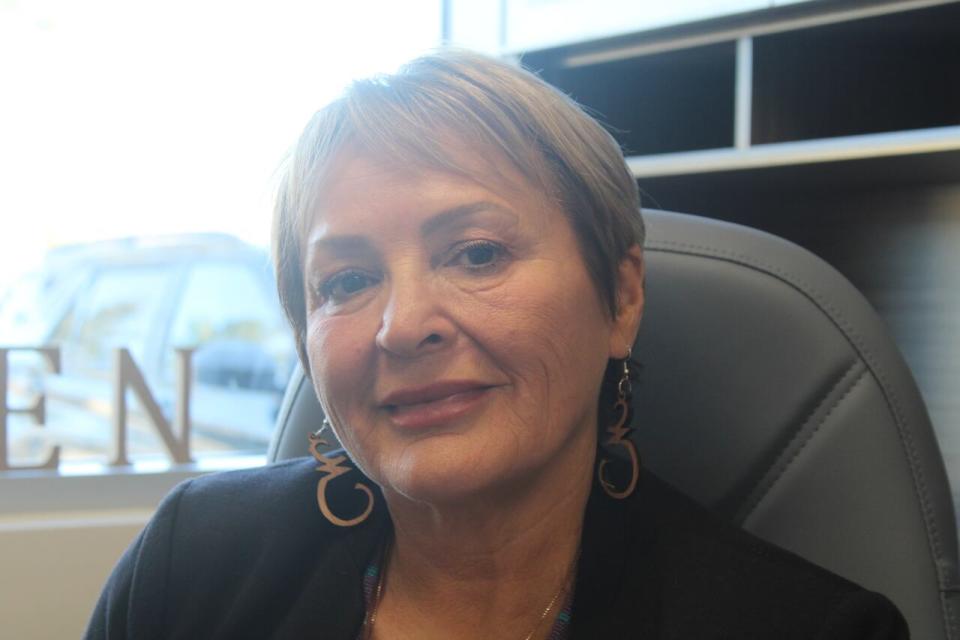We'koqma'q First Nation raises signs as part of MMIWG campaign

Two new signs along TransCanada Highway 105 passing through We'koqma'q First Nation in Nova Scotia are meant to shine a light on the ongoing issue of missing and murdered Indigenous women and girls.
Chief Annie Bernard-Daisley said she wants to empower her community to tackle the underlying risk factors that make Indigenous people targets of violence.
"One part of the signage is that change is needed," said Bernard-Daisley.
"The change should be occurring on a community level, community by community."
Bernard-Daisley said the signs in the community on Cape Breton Island, about 75 kilometres southwest of Sydney, N.S., have three key goals: to shine a light on the ongoing issues, to deter human trafficking and to honour Cassidy Bernard.
Bernard, Bernard-Daisley's 22-year-old cousin, was found dead in her home in 2018. Bernard's ex-boyfriend Austin Dwight Isadore pleaded guilty to manslaughter and child abandonment in 2022, and was sentenced to 15 years in prison.
"It was emotional for [Cassidy's mother] to see the signage in our community on many levels," said Bernard-Daisley.

Annie Bernard-Daisley at a rally in memory of her cousin Cassidy Bernard in 2019. Now chief of We'koqma'q, she says the signs are meant to keep the conversation going around murdered and missing Indigenous women and girls. (Brittany Wentzell/CBC)
She said We'koqma'q has worked to make the community safer and has applied for funding through Indigenous Service Canada's Pathways to Safe Indigenous Communities Initiative, which has committed $120 million over five years (2021-2026) to improve safety and well being in First Nation, Métis and Inuit communities.
Bernard-Daisley said through the program she hopes to add sidewalks, street lights and reliable taxi services to the First Nation.
"Those of us that are working on the front lines know what our community needs more than the government ever will," she said.
In 2019, the national inquiry into missing and murdered Indigenous women and girls released its final report, with 231 calls for justice — recommendations on how to end violence toward Indigenous women and girls.
CBC News released a report card in 2023 tracking progress on the calls for justice, and at the time only two calls were completed, with many still in progress.
'A strong message'
Barry Bernard from Eskasoni First Nation, co-designer of the sign, was at a photo shoot working with a Mi'kmaw model when he thought about messaging around MMIWG.
Once he saw the model with the red hand print, he said he knew it embodied strength.
"It's a strong message to send out, but it's true there are still missing and murdered Indigenous women and children today as we talk all around North America," he said.
"I hope the message says that we need to educate everybody and it's not only just our problem, it's everybody's problem."

Anita Boyle, executive director of Nignen women's shelter, says she'd like to see communities return to traditional systems that valued women. (Oscar Baker III/ CBC )
Anita Boyle, executive director of Nignen, a women's shelter in Natoaganeg First Nation in New Brunswick, said addressing the issue of missing and murdered Indigenous women and girls is multifaceted.
It would require things such as ensuring law enforcement and the judicial system understand the role intergenerational trauma plays in the lives of Indigenous people, adequate housing for Indigenous women in urban centres; and for men in Canada to get more education around intimate partner violence.
Ultimately she said she'd like to see Indigenous communities return to traditional systems that valued women.
"I think that there's a lot that we could learn from going back to those old values of respect, honesty, caring, sharing," said Boyle.
"I think a lot of that has got displaced because of capitalism and colonization in general."


